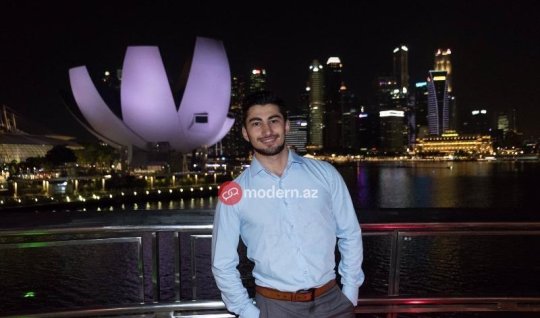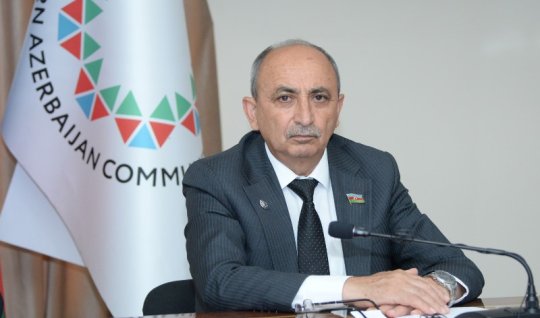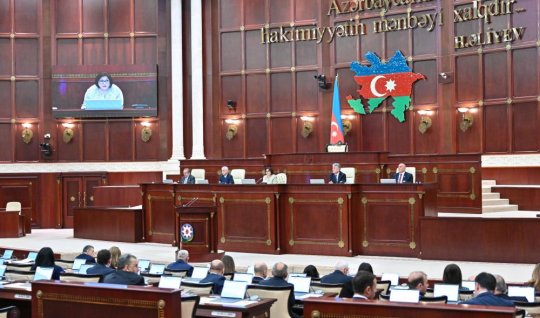What is happening in the Kremlin?

The ongoing four-year war between Russia and Ukraine, as well as the rapid expansion of the powers of security agencies, has created serious fragmentation within the Kremlin elite.
Modern.az reports that, according to sources close to the Kremlin who spoke to “Vazhnye Istorii,” Russia's governance system is experiencing a deep crisis, and an open struggle for resources, confrontations, and chaos within the government are increasingly intensifying.
Sources indicate that previously existing decision-making mechanisms have practically collapsed, and everyone is “working for their own interest”:
“The system has now reached a stage where no rules remain, neither good nor bad. Everyone understands that there is no protection, nor any guarantee of security. No one is insured against anything,” – notes an official working in Kremlin structures.
According to sources, the greatest force creating chaos in the Russian government is the "siloviki". They act without coordination with the government and the political bloc of the Presidential Administration, often making completely independent decisions.
The “foreign agent” status, used for years to silence the opposition, has now completely escaped the control of the Presidential Administration. This status is now granted not only to Kremlin critics but also to large business owners and even some pro-Kremlin bloggers.
Sergey Kiriyenko, First Deputy Head of the Presidential Administration, can no longer be the winning side in confrontations with security agencies. Although he curates domestic policy within the Kremlin, decisions regarding the arrest of officials are not communicated to him in advance. Yet, among those arrested are individuals appointed by Kiriyenko.
The figures more clearly illustrate the tension of the situation: since the start of the war, arrests of officials across Russia have tripled. In 2025 alone, 155 officials – mayors, vice-governors, and high-ranking individuals – were arrested. During the same period, the Prosecutor's Office confiscated business assets worth 4.5 trillion rubles.
Sources indicate that the longer the war continues, the deeper the struggle between power centers within the Kremlin becomes, and state governance rapidly moves towards chaos spiraling out of control.
-
00:40, Bu günThis country requested assistance from the USA
-
00:14, Bu günFrom Hamas's underground bunker New IMAGES
-
20 November 2025, 22:20A fire broke out at COP30
-
20 November 2025, 20:233+3 this time in Baku and Yerevan - From Moscow REACTION
-
20 November 2025, 18:14“Azerbaijan and Armenia can strengthen each other”
-
20 November 2025, 18:08From Erdoğan regarding the population WARNING
-
20 November 2025, 17:47A new alliance in Central Asia WILL BE CREATED
-
20 November 2025, 17:22Armenians tomorrow to Baku ARE COMING
-
20 November 2025, 15:55A favorable peace plan is being prepared for Ukraine - Rubio confirmed
-
20 November 2025, 15:37Two individuals are coordinating the opening of the Zangezur corridor in Armenia
-
20 November 2025, 15:04Pashinyan goes to Kazakhstan today
-
20 November 2025, 15:01In Armenia, these women are called to military service
-
20 November 2025, 14:56Israel's Foreign Minister to visit Azerbaijan
-
20 November 2025, 13:33Threat to our embassy in Ukraine continues
-
20 November 2025, 12:39Executive heads of Baku districts: Why do officials hide their biographies?
-
20 November 2025, 11:36Decision made - COP31 will be held in this country
-
20 November 2025, 10:44Relations with Turkey and Azerbaijan are very important for Armenia - Mirzoyan
-
20 November 2025, 10:24A monument should be erected in connection with the Qarakənd tragedy! - PROPOSAL
-
20 November 2025, 09:48Moscow is ready for talks with Ukraine - Peskov
-
20 November 2025, 09:36Turkish plane in just 5 seconds shattered into pieces
-
20 November 2025, 09:00Trump's special representative resigns
-
19 November 2025, 23:38What did Putin say to Trump about Azerbaijan? - VIDEO
-
19 November 2025, 22:52USA demands Ukraine's surrender – SHOCK PLAN
-
19 November 2025, 21:59What is happening in the Kremlin?
-
19 November 2025, 21:41The two greatest figures in history at the White House
-
19 November 2025, 20:36Nothing happened to Putin
-
19 November 2025, 20:29We trust Turkish diplomacy - ZELENSKY
-
19 November 2025, 20:13Has the US sent proposals to Russia?
-
19 November 2025, 19:27Three days of mourning declared in Ukraine
-
19 November 2025, 17:56Erdoğan-Zelensky meeting HAS STARTED
























































